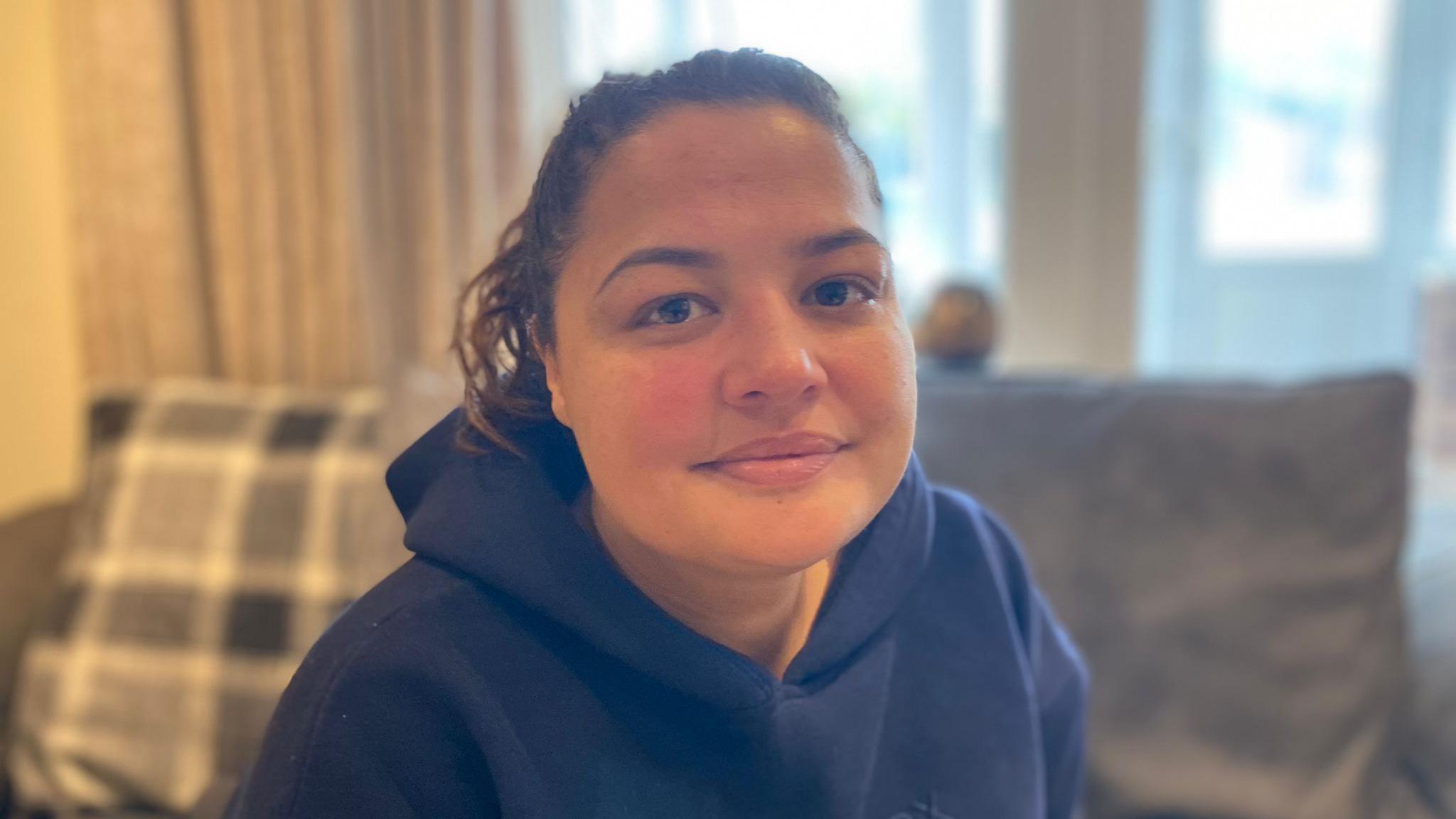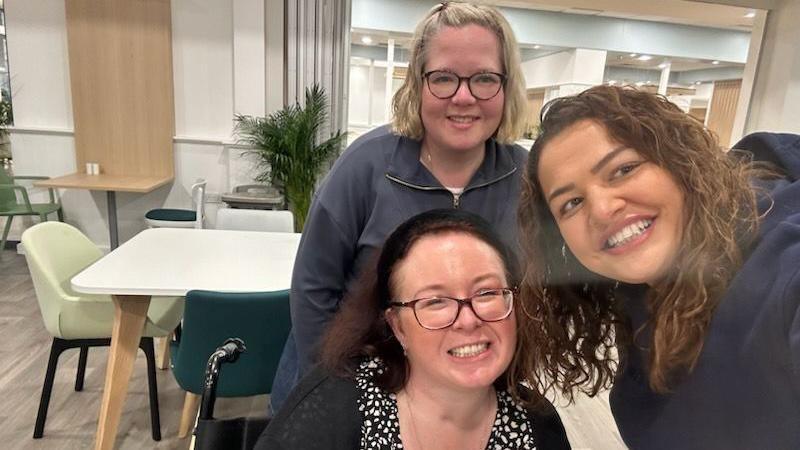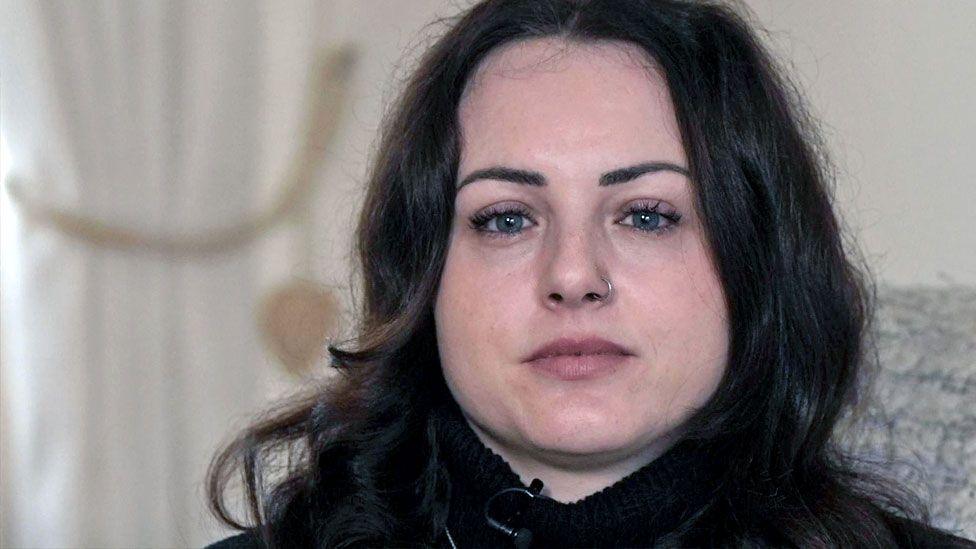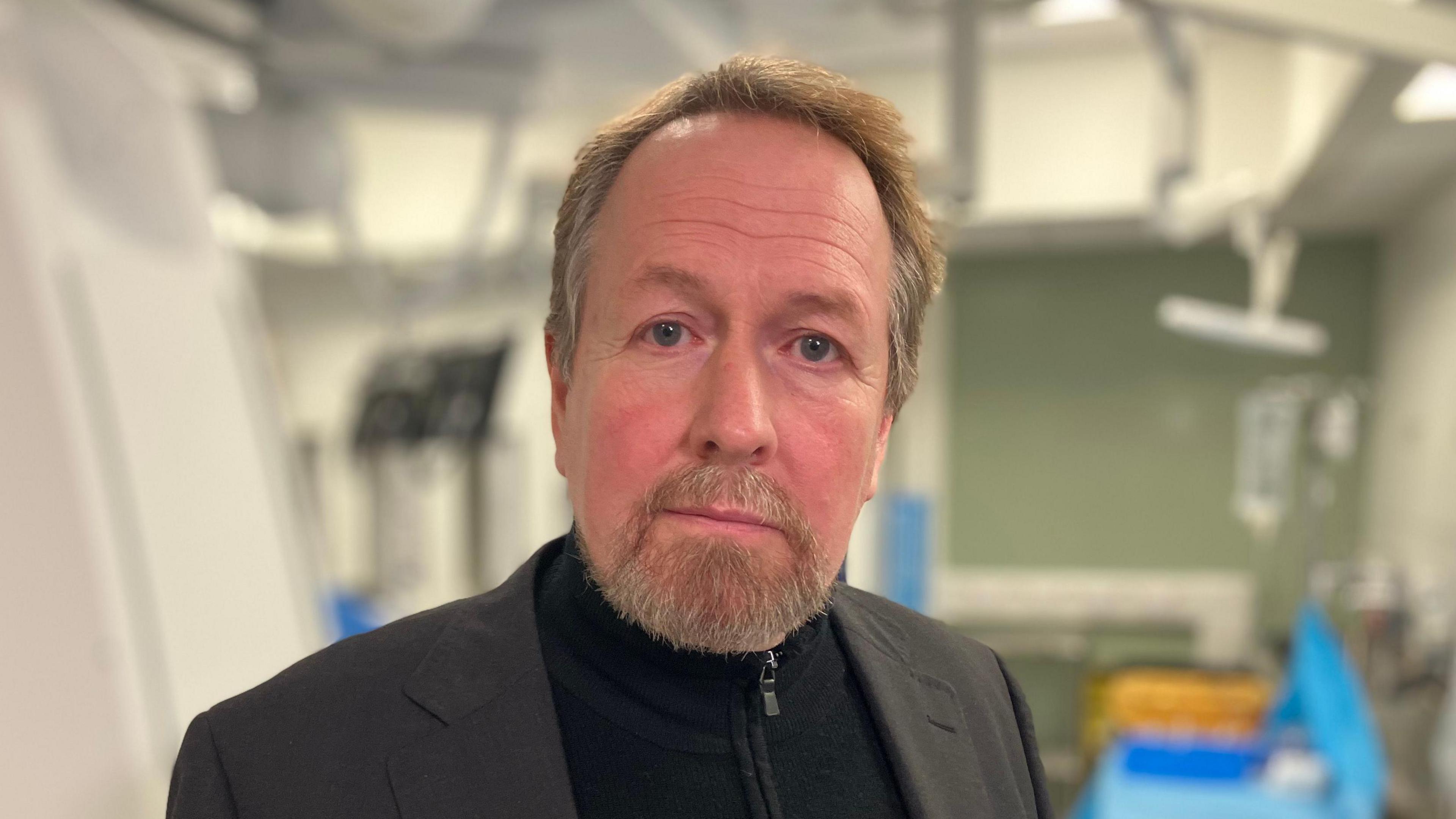'Recovering after stroke at 39 is a very dark place'

Vicky Prussia was rushed to hospital after finding she could not use her left arm
- Published
"You've had a stroke" were the last words 39-year-old Vicky Prussia expected to hear.
But that's what she was told after being rushed to King's Mill Hospital on 15 April.
She had started to feel unwell while at work and felt dizzy before she found she was unable to use her left hand.
Ms Prussia, from Newark, has been unable to return to work since and, surprised at a lack of support groups for younger people who have had strokes, has started her own - Stroke 2 Strength.

Ms Prussia has set up a support group on Facebook and has already met some members in person
Describing the onset of her symptoms, she said: "I couldn't bend my fingers or lift my arm up.
"I started to panic and realised something was wrong."
Ms Prussia said tests later revealed her stroke was caused by a clot travelling through an undiagnosed hole in her heart into her brain.
On her recovery, she said: "I struggled with my anxiety, my balance was very off and I walked with a limp.
"My speech was very slow and I suffered with a lot of nerve pain.
"It's a very dark place."
She started to reach out to local support groups but she found many of them were for older people, with most of the members being aged between 50 and 80 years old.
"They gave me a brief description of some of the things they'd been doing over the last couple of weeks and they'd had a choir in and played picture bingo," she said.
“That made me feel even worse because I needed to get back to normal because I have an eight-year-old.
"I needed to be a mum as well as getting back to work."
'Things do get better'
Ms Prussia said she set up a Facebook group, for people under the age of 50 who have had strokes, in September.
It has 26 members so far and they have already met in person twice.
She said the group had helped her and others deal with their situations.
"Just being able to sit and talk to someone and have someone understand the anxiety that you get after a stroke, and that actually this real low mood is completely normal and that things do get better,” she explained.
Group member Joanne Ford had a stroke in 2022 at the age of 45.
"There was no support at all within the community of Newark," she said.
"I am now supporting Vicky with this. It's so important to be able to support others."
According to the Stroke Association, a quarter of stroke survivors are of working age or younger.
Sarah Adderley, the charity’s associate director for the Midlands, said: "For a long time people did see stroke as something that happened to older people.
"So, although there is a network of stroke groups across the country, you do see that a lot of them have an older age cohort that that are attending them."
Get in touch
Tell us which stories we should cover in Nottingham
Follow BBC Nottingham on Facebook, external, on X, external, or on Instagram, external. Send your story ideas to eastmidsnews@bbc.co.uk, external or via WhatsApp, external on 0808 100 2210.
Related topics
- Published29 October 2024

- Published16 November 2024
